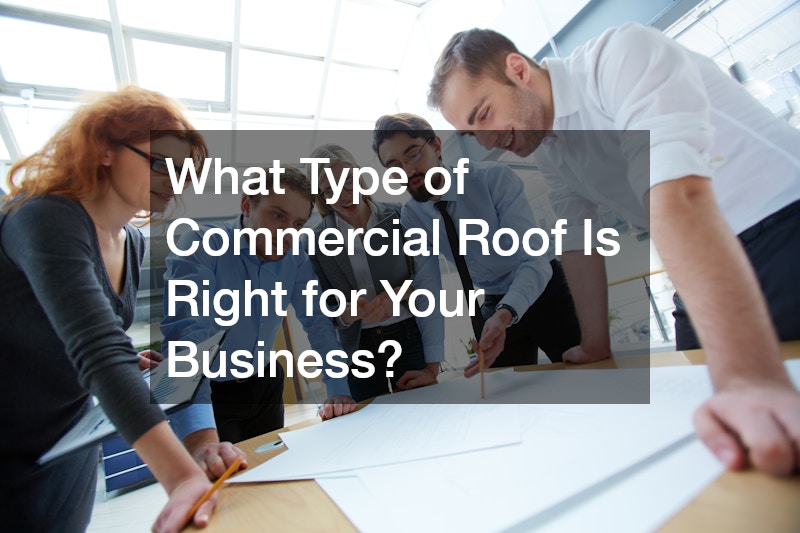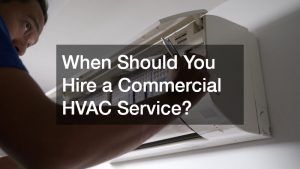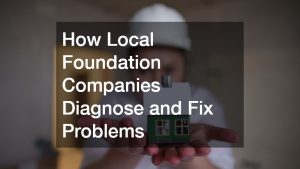Choosing the right commercial roof is a significant decision for any business owner. Your building’s roof is a crucial component that protects your property from the elements, helps maintain energy efficiency, and contributes to the overall longevity of your facility. With a variety of roofing materials and systems available, it can be challenging to decide which option is best suited for your business. Consulting a commercial roofing contractor is always a smart step in making the best decision. Here’s a guide to help you understand the different types of commercial roofing and their benefits.
1. Flat Roofs
Flat roofs are among the most common choices for commercial buildings, especially for warehouses, factories, and large retail spaces. Despite the name, flat roofs have a slight pitch to allow water drainage. They offer several advantages for businesses.
One of the key benefits of flat roofs is their cost-effectiveness. Materials like EPDM (Ethylene Propylene Diene Monomer) and TPO (Thermoplastic Polyolefin) are affordable and easy to install. They also provide extra usable space on the roof, where businesses can place HVAC units or solar panels. Flat roofs are also easier to inspect and maintain, reducing long-term costs.
A commercial roofing contractor can help you choose between different types of flat roofing materials, each offering distinct benefits. EPDM is known for its durability and resistance to weathering, while TPO is energy-efficient and reflects UV rays, helping reduce cooling costs.
2. Metal Roofing
Metal roofing is another popular option for commercial buildings. Metal roofs are durable, long-lasting, and can withstand harsh weather conditions, making them ideal for businesses in areas prone to extreme weather, such as heavy snow, rain, or wind.
The longevity of metal roofs is one of their primary advantages. While metal roofing can have a higher upfront cost than other materials, it often lasts much longer, sometimes up to 50 years or more. Additionally, metal roofing is fire-resistant and highly energy-efficient, as it reflects sunlight, keeping your building cooler in the summer. This can lead to savings on energy bills over time.
Many commercial roofing contractors recommend metal roofs for businesses that prioritize longevity, durability, and minimal maintenance. Metal roofs are available in various styles and finishes, allowing business owners to customize the appearance of their building.
3. Built-Up Roofing (BUR)
Built-up roofing, also known as BUR, has been a reliable choice for commercial properties for decades. BUR systems consist of multiple layers of tar, asphalt, and gravel, creating a highly durable, waterproof roof. This type of roofing is particularly effective for flat or low-slope roofs.
The primary benefit of BUR is its long-lasting durability. The multiple layers provide excellent protection against harsh weather, including heavy rain, snow, and high winds. Additionally, the gravel surface helps reflect UV rays, keeping your building cooler and reducing energy costs.
While BUR systems require a longer installation process compared to other roofing types, they offer superior protection and can last for 20-30 years with proper maintenance. A commercial roofing contractor can advise whether BUR is the right option for your building based on your specific needs.
4. Modified Bitumen Roofing
Modified bitumen roofing is an evolution of the traditional BUR system. It involves applying sheets of bitumen, reinforced with fiberglass or polyester, to the roof in layers. Modified bitumen roofing is known for its flexibility, which makes it an excellent option for areas with fluctuating temperatures or high foot traffic.
This type of roofing system offers many of the same benefits as BUR but with greater ease of installation and maintenance. It also has superior waterproofing capabilities, making it an ideal choice for buildings that require high moisture resistance, such as restaurants or manufacturing facilities.
A commercial roofing contractor can install modified bitumen roofing using either hot or cold adhesives, depending on your building’s specific needs. Its flexibility and waterproof properties make it a reliable, long-lasting choice for many commercial buildings.
5. Green Roofing
Green roofs, or living roofs, are an eco-friendly option growing in popularity for commercial buildings. A green roof consists of a waterproof membrane, soil, and vegetation. These roofs are not only visually appealing but also offer numerous environmental and economic benefits.
Green roofs provide natural insulation, helping reduce energy consumption by keeping the building cooler in the summer and warmer in the winter. They also improve air quality and reduce stormwater runoff, making them an excellent choice for businesses committed to sustainability.
While the initial installation cost for green roofs can be higher than other roofing types, the long-term benefits often outweigh the costs. Consulting a commercial roofing contractor is essential to ensure your building is structurally capable of supporting a green roof, as they require additional weight-bearing capacity.
Selecting the right commercial roofing system is crucial to protecting your building, maintaining energy efficiency, and minimizing long-term maintenance costs. Whether you opt for flat roofs, metal, BUR, modified bitumen, green roofing, or shingles, working with a trusted commercial roofing contractor will ensure that your business gets the most out of its investment. By understanding the different options available, you can make an informed decision that best suits your needs, budget, and building requirements.
.








